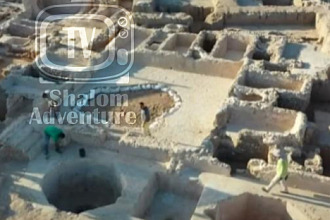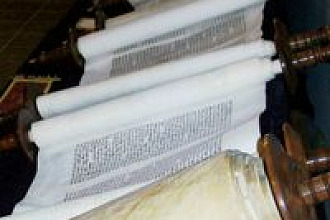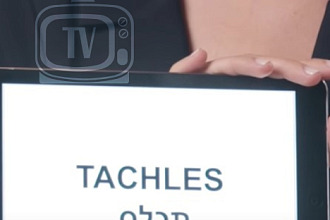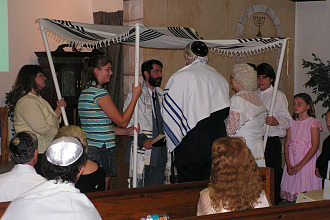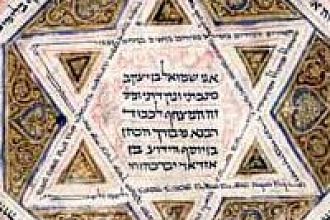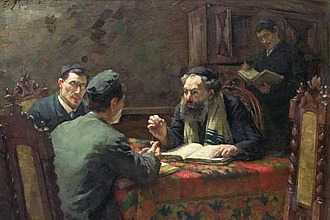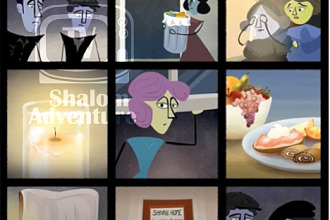The word Halakhah comes from the root word halakh which means “to go” and it is the name given to the collective teachings of Jewish laws which involve the regulation of various aspects of Jewish life including the Oral Torah-teachings that were associated with the Torah and used to explain it but are not explicitly presented by the Torah.
These laws became a prominent part of Jewish life around 400 BCE and rabbinic tradition claims that the origin of these laws-although not outlined in the Torah-can also be traced back to a time when Moses received the law of God from Mount Sinai (MJL Staff, n.d) except for some later amendments made to address different circumstances in the modern world (“Encyclopedia Judaica: Halakhah”, n.d).
Torah itself doesn’t provide proof for this claim regarding the origin of the Oral Law as unwritten details excluded from the Torah. In fact, some Jews think the idea of an unwritten law not included in the Torah by Moses is actually contradicted by following passages from the Torah itself, “’Only Moses is allowed to come near to the Lord…none of the other people are allowed to climb up the mountain with him.’ Then Moses went down to the people and repeated all the instructions and regulations the Lord had given him. All the people answered with one voice, ‘We will do everything the Lord has commanded.’ Then Moses carefully wrote down all the Lord’s instructions...” Exodus 24:2-4 and “Do not add to or subtract from these commands I am giving you. Just obey the commands of the Lord your God that I am giving you.” Deuteronomy 4:2. However, that is not considered a major point of concern for some.
Some of the Talmud’s authors say of laws presented in halakhah, "it is self-evident," and because of this no scriptural proof is required (“Encyclopedia Judaica: Halakhah”, n.d). The scripture is seen as a support for those laws but not the foundation of it. The foundation of reasoning process behind many rabbinical teachings are not strictly based on the scripture- if it is based on it at all- but on “logical” reasoning. I put “logical” in quotes because what seems logical to one person may not be to another and so it comes as no shock that different sects of Judaism have different ideas about what logical is, so there can be a lot of disagreement between various Jewish communities about what logic to use and how any particular ritual should be performed.
Despite this issue of trying to find Biblical support for things not clearly outlined or mentioned in the Torah, does the Jewish Bible contain principles that can be applied to things that are not specifically in the Torah? The answer is yes. Consider this passage from the Torah for example, “If you come upon your enemy’s ox or donkey straying, you must return it to him. If you see the donkey which belongs to someone who hates you lying down helpless under its load, you are not to pass him by but to go and help him free it. Exodus 23:4-5. Although not many people may have donkeys now, we can still apply the principle of this passage to circumstances that may not be specifically mentioned. If you see the lost cat of an annoying neighbor you can try to return it, or if you see someone’s car battery is dead and you have a car battery changer you can offer to help start it. The Torah may not say specifically to return your neighbors lost cat, or to offer to help a person with a car but the principle is there-“‘Do not seek revenge or bear a grudge against anyone among your people, but love your neighbor as yourself. I am the Lord.’” Leviticus 19:18-and that is indeed evident.
However, when extending Biblical principles to circumstances not specifically mentioned in the Bible you must be sure the root of the principle is rooted in what the Bible actually says, and is not a concept of mere human origin which is not supported by anyone in scriptures. The Jewish prophet Isaiah warned about this, “Then Adonai said: ‘Because these people approach me with empty words, and the honor they bestow on me is mere lip-service; while in fact they have distanced their hearts from me, and their ‘fear of me’ is just a mitzvah of human origin —therefore, I will have to keep shocking these people with astounding and amazing things, until the ‘wisdom’ of their ‘wise ones’ vanishes, and the ‘discernment’ of their ‘discerning ones’ is hidden away.’” Isaiah 29:13-14
God wants us to learn but our learning should depend more on what God says than on what we think is correct. “Trust in the Lord with all your heart, and lean not on your own understanding; in all your ways acknowledge Him, and He shall direct your paths.” Proverbs 3:5-6. It is interesting that the Jewish King Solomon said, “There is a way that seems right to a man, but its end is the way of death.” Proverbs 16:25 and again in another passage “There is a way that seems right to a man, but its end is the way of death.” Proverbs 14:12 but “In the way of righteousness is life, and in its pathway there is no death. ” Proverbs 12:28. The fact that he felt the need to say repeatedly that our understanding of what is right can be completely wrong indicates that our ideas regarding what is self-evident is something we need to give serious prayerful thought to. “The fear of the Lord [not tradition] is the beginning of knowledge, but fools despise wisdom and instruction.” Proverbs 1:7 When in doubt regarding the best policy the best Rabbi to ask is God because with humans there will always be inconsistency.
References:
Author Unknown, “Encyclopedia Judaica: Halakhah” Jewish Virtual Library received from
http://www.jewishvirtuallibrary.org/halakhah
MJL Staff n.d “Halacha: The Laws of Jewish Life” My Jewish Learning received from
http://www.myjewishlearning.com/article/halakhah-the-laws-of-jewish-life
Picture originally found here







